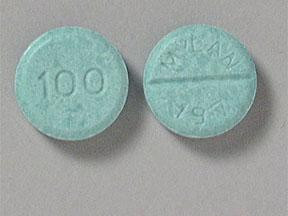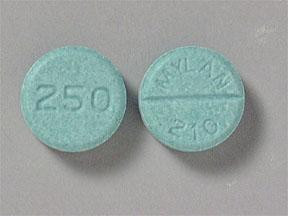CHLORPROPAMIDE - ORAL
PHONETIC PRONUNCIATION: (klor-PROE-pa-mide)
COMMON BRAND NAME(S): Diabinese
GENERIC NAME(S): chlorpropamide
Uses
USES: Chlorpropamide is used with a proper diet and exercise program to control high blood sugar in people with type 2 diabetes. It may also be used with other diabetes medications. Controlling high blood sugar helps prevent kidney damage, blindness, nerve problems, loss of limbs, and sexual function problems. Proper control of diabetes may also lessen your risk of a heart attack or stroke. Chlorpropamide belongs to the class of drugs known as sulfonylureas. It lowers blood sugar by causing the release of your body's natural insulin.
How to use CHLORPROPAMIDE - ORAL
HOW TO USE: Take this medication by mouth with breakfast as directed by your doctor, usually once daily. The dosage is based on your medical condition and response to treatment. If this medication causes stomach upset, discuss with your doctor if it may be helpful to divide your daily dose into smaller doses to be taken several times a day. Follow your doctor's instructions carefully. To reduce your risk of side effects, your doctor may direct you to start this medication at a low dose and gradually increase your dose. Follow your doctor's instructions carefully. Use this medication regularly to get the most benefit from it. To help you remember, take it at the same time each day. Tell your doctor if your condition does not improve or if it worsens (your blood sugar is too high or too low).
Side Effects
Precautions
Interactions
Overdose
Images

- color
- green
- shape
- round
- imprint
- MYLAN 197, 100

- color
- green
- shape
- round
- imprint
- MYLAN 210, 250
Reviews
Faq for CHLORPROPAMIDE - ORAL
- Chlorpropamide is an oral medication used to control high blood sugar in individuals with type 2 diabetes.
- Chlorpropamide works by stimulating the pancreas to produce more insulin, which helps lower blood sugar levels.
- Some common side effects of Chlorpropamide may include upset stomach, nausea, vomiting, diarrhea, headache, and dizziness.
- Chlorpropamide can be used alone or in combination with other diabetes medications, depending on the individual's needs and the doctor's recommendation.
- Chlorpropamide is usually taken by mouth once or twice a day, as prescribed by a healthcare professional. It is generally recommended to take it with food to minimize stomach upset.
- Yes, there are several precautions and warnings associated with Chlorpropamide. It should not be used in individuals with certain medical conditions, such as diabetic ketoacidosis or severe kidney disease. It may also increase the risk of low blood sugar (hypoglycemia), especially in elderly individuals or those with liver or kidney problems.
- It is important to consult a healthcare professional before taking Chlorpropamide during pregnancy or while breastfeeding, as it may not be recommended in these situations.
- If you miss a dose of Chlorpropamide, take it as soon as you remember. However, if it is close to your next scheduled dose, skip the missed dose and continue with your regular dosing schedule. Do not double the dose to make up for a missed one.
- Yes, Chlorpropamide can interact with certain medications and increase the risk of side effects or affect the effectiveness of the medications. It is important to inform your doctor or pharmacist about all the medications you are taking, including prescription drugs, over-the-counter medicines, and herbal supplements.
Disclaimer
IMPORTANT: HOW TO USE THIS INFORMATION: This is a summary and does NOT have all possible information about this product. This information does not assure that this product is safe, effective, or appropriate for you. This information is not individual medical advice and does not substitute for the advice of your health care professional. Always ask your health care professional for complete information about this product and your specific health needs.
No Reviews Yet